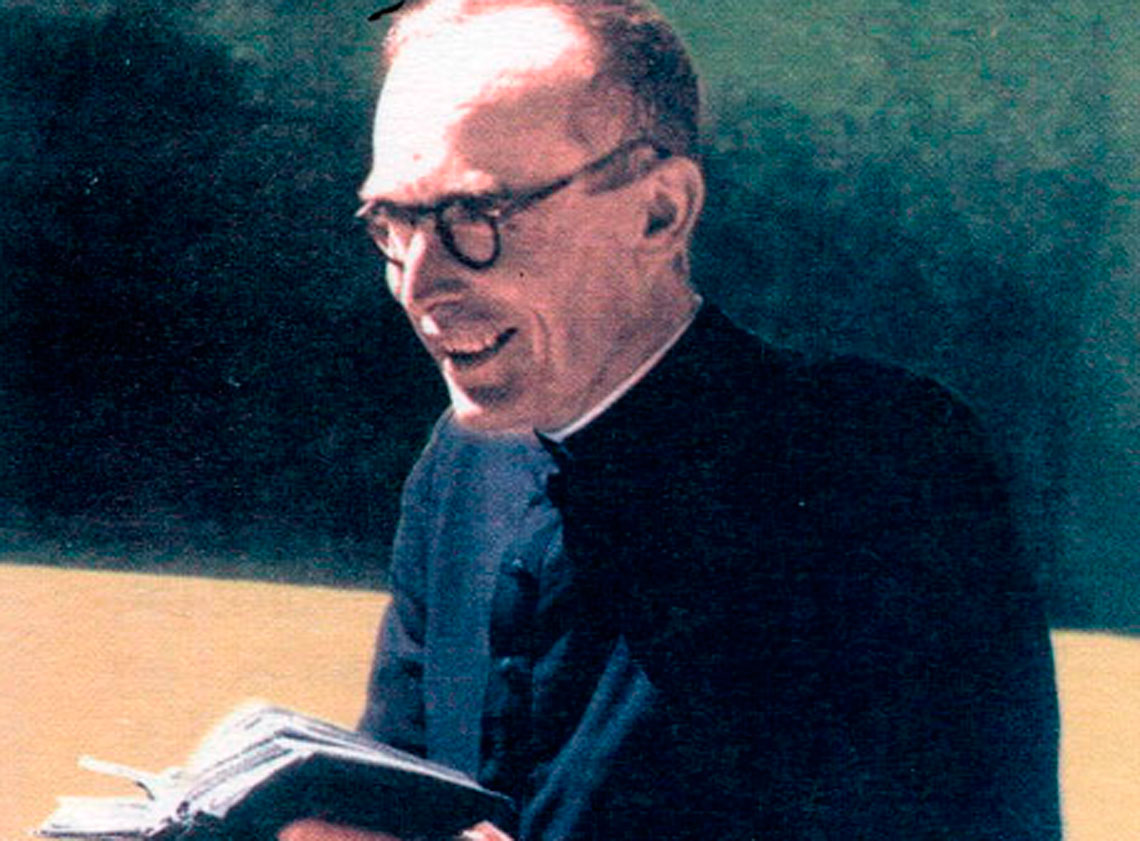
Pere Tarrés i Claret was born in Manresa on 30 May 1905 and died in Barcelona on 31 August 1950.
In just 45 years, he completed an intense and prolific body of professional and religious work in the three important areas of his life: medicine, Christian youth leadership and priesthood.
From 1926 to 1939, he distinguished himself as a doctor with a profound understanding of human nature. He knew how to easily establish the connection between body and spirit, always valuing people, whom he treated with great humanity. During the Spanish Civil War, he worked as a field doctor in the Republican Army and treated the numerous wounded, including those from the terrible battles of Valadredo and the Ebro; the tragic circumstances and precariousness of available resources made his work as a doctor a heroic act.
Between the years 1931 and 1936, he was a leader in the Federation of Young Christians of Catalonia (FJOC for its initials in Catalan), where he carried out extensive work in leadership and leader training at awareness-raising events and member gatherings. As a result of this membership, he was persecuted during the time of priests’ execution in Barcelona and had to go into hiding for a year.

In his writings for the magazine Flama, we can find examples of FJOC ideals, which were also his own ideals and the ones he knew how to spread to young people. His texts reveal the collection of human and Christian values which he intelligently proposed, with passion and a gift for communicating.
Dr Pere Tarrés was ordained as a priest in May 1942 and accepted with great humility and spirit of service all the clerical tasks which he was given. He was Vicar of Sant Esteve de Sesrovires, where he worked in the renovation of the aspirancy of Catholic Action.
He always knew how to combine prayer with action and had an extraordinarily dynamic life because of it, filled with a sense of transcendence and great enthusiasm and confidence that spread to everyone he interacted with.
In 1947, he and his friend Dr Gerard Manresa, a well-known and qualified specialist in respiratory tract infections, founded the Clínica Sanatori de la Mare de Déu de la Mercè. The clinic — established in the building which now serves as the Pere Tarrés Foundation headquarters — treated many people from families without resources affected by tuberculosis and other infectious diseases.
In 1949 he was named chaplain to the Catholic School of Social Workers, where he also worked as an educator.
"Novena del Fiat" to Blessed Pere Tarrés i Claret
The Foundation
How we do
Transparency portal
Sustainability and environment
Quality
Ethical commitment
Quality
Promoting equality
SDG
Networking
Recognition and awards
Who endorses and supports us
Charity projects
Presentation
Projects
How to help
Cooperation
Transparency and accountability
Frequently asked questions